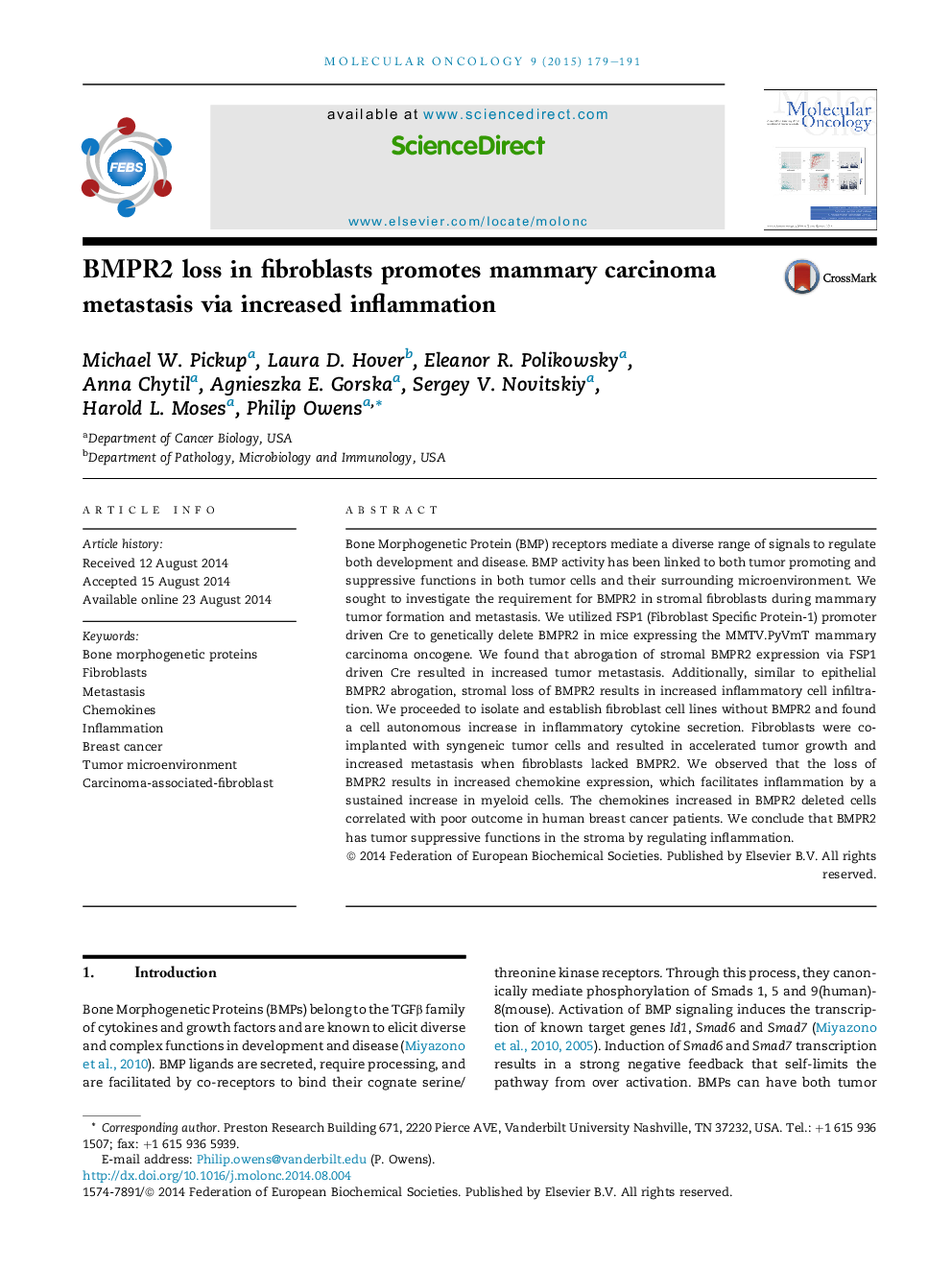| Article ID | Journal | Published Year | Pages | File Type |
|---|---|---|---|---|
| 10914807 | Molecular Oncology | 2015 | 13 Pages |
Abstract
Bone Morphogenetic Protein (BMP) receptors mediate a diverse range of signals to regulate both development and disease. BMP activity has been linked to both tumor promoting and suppressive functions in both tumor cells and their surrounding microenvironment. We sought to investigate the requirement for BMPR2 in stromal fibroblasts during mammary tumor formation and metastasis. We utilized FSP1 (Fibroblast Specific Protein-1) promoter driven Cre to genetically delete BMPR2 in mice expressing the MMTV.PyVmT mammary carcinoma oncogene. We found that abrogation of stromal BMPR2 expression via FSP1 driven Cre resulted in increased tumor metastasis. Additionally, similar to epithelial BMPR2 abrogation, stromal loss of BMPR2 results in increased inflammatory cell infiltration. We proceeded to isolate and establish fibroblast cell lines without BMPR2 and found a cell autonomous increase in inflammatory cytokine secretion. Fibroblasts were co-implanted with syngeneic tumor cells and resulted in accelerated tumor growth and increased metastasis when fibroblasts lacked BMPR2. We observed that the loss of BMPR2 results in increased chemokine expression, which facilitates inflammation by a sustained increase in myeloid cells. The chemokines increased in BMPR2 deleted cells correlated with poor outcome in human breast cancer patients. We conclude that BMPR2 has tumor suppressive functions in the stroma by regulating inflammation.
Keywords
Related Topics
Life Sciences
Biochemistry, Genetics and Molecular Biology
Cancer Research
Authors
Michael W. Pickup, Laura D. Hover, Eleanor R. Polikowsky, Anna Chytil, Agnieszka E. Gorska, Sergey V. Novitskiy, Harold L. Moses, Philip Owens,
